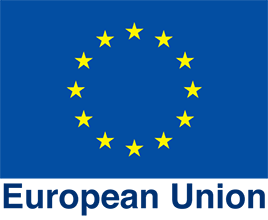Summary Highlights: 18-20 March 2019
 The second Substantive Session of the Ad Hoc Open Ended Working Group was drawn to a close Wednesday with the adoption of a provisional agenda and dates for the third session, which will convene for three days from 20 to 22 May 2019. The three-day arrangement was agreed as part of a compromise after a series of exchanges on scheduling, taking into account the need to allow for adequate time for the OEWG to meet the demands of its mandate from the UN General Assembly (UNGA resolution 72/277). The Co-Chairs will also make themselves available for informal consultations on the preceding weekend.
The second Substantive Session of the Ad Hoc Open Ended Working Group was drawn to a close Wednesday with the adoption of a provisional agenda and dates for the third session, which will convene for three days from 20 to 22 May 2019. The three-day arrangement was agreed as part of a compromise after a series of exchanges on scheduling, taking into account the need to allow for adequate time for the OEWG to meet the demands of its mandate from the UN General Assembly (UNGA resolution 72/277). The Co-Chairs will also make themselves available for informal consultations on the preceding weekend.
Co-Chairs Francisco Duarte Lopes, Portugal, and Amal Mudallali, Lebanon, will circulate elements of draft recommendations during the intersessional period, as delegations prepare to move to negotiations on a series of emergent recommendations to the UN General Assembly, possibly including a legal instrument, high level declaration, and other possible responses to gaps or challenges in international environmental law (IEL) and related instruments.
In a non-exhaustive oral summary of points addressed during the second session, the Co-Chairs noted discussion on:
- A broad approach to gaps, understood as lacunae, deficiencies or challenges in IEL or related instruments;
- The interpretation, unequal application and lack of consistency in approaches to IEL principles;
- Different views on the nature of a new instrument, including the possibility of a legally or non-legally binding instrument; a high-level declaration; and/or a document from the UN General Assembly;
- Agreement on strengthening international environmental governance, following observations on a lack of system coherence, implementation challenges, and a failure to adequately reflect the interdependent nature of the earth’s ecosystems; and
- The need to address and strengthen the roles of UNEP and UNEA in line with paragraphs 88 and 89 of the Rio+20 outcomes document, in the context of strengthening international environmental governance and IEL on a system-wide basis across the UN system.
Delegations were invited to submit further recommendations to the Co-Chairs by 12 April.
The day began with a moment of silence to mark the passing of Ambassador Brenda Muntemba of Zambia, who died in a road traffic accident, and a tribute to three UN interpreters who lost their lives in the Ethiopian Airlines crash in the run-up to the meeting.
Mudallali then thanked the OEWG for their hard work before Duarte gavelled the close of the meeting at 16.04.
For more details, read our summary and analysis of the second Substantive Session of the Ad Hoc Open Ended Working Group.
IISD Reporting Services, through its ENB Meeting Coverage, has provided daily web coverage and a summary and analysis report from the 2nd Substantive Session of the Ad Hoc Open Ended Working Group Towards a Global Pact for the Environment. The summary and analysis report is now available in HTML and PDF.
Photos by IISD/ENB | Mike Muzurakis
For photo reprint permissions, please follow instructions at our Attribution Regulations for Meeting Photo Usage Page.
+ Visit the web coverage for Wednesday, 20 March 2019

Tumasie Blair, Antigua and Barbuda

Maribe Mujinga Nsompo, Democratic Republic of the Congo

Alejandro Garofali and Marcelo Cousillas, Uruguay

Jamil Ahmad, UNEP, with Peter Doran, IISD Reporting Services (IISD-RS)

Patrick Luna, Brazil, and Co-Chair Francisco António Duarte Lopes, Permanent Representative to the United Nations, Portugal

Helge Elisabeth Zeitler and Sebastian Gil, European Union

Meriem El Hilali, Morocco

Camila Zepeda Lizama, Mexico

Nassira Rheyati, Morocco, and Mariline Diara, Senegal

Natalie Jones, IISD-RS, with Jacqueline Ruesga, Canada

Delegates from the Group of Latin America and the Caribbean (GRULAC)

View of the dais during the plenary session
 On Tuesday, delegations completed their deliberations based on four guiding questions issued by the Co-Chairs, Amal Mudallali, Lebanon, and Francisco Duarte Lopes, Portugal. The questions invited delegations to address:
On Tuesday, delegations completed their deliberations based on four guiding questions issued by the Co-Chairs, Amal Mudallali, Lebanon, and Francisco Duarte Lopes, Portugal. The questions invited delegations to address:
- Options to address possible gaps or challenges related to principles of International Environmental Law (IEL);
- Options to address possible gaps related to the governance structure of IEL;
- Options to address gaps or challenges relating to implementation of IEL; and
- Options to address specific regulatory regimes or environment-related instruments.
An intensive round of bilateral activity involving advocates of a global pact also engaged the attention of delegations on the margins of the meeting in Nairobi.
While some delegations continued to probe proposals for a new instrument and other related options, other delegations began to outline possible outcomes from the OEWG process, including:
- An instrument incorporating a human rights and gender approach, and reference to planetary boundaries;
- A compilation instrument incorporating the main principles of IEL;
- A legally binding instrument or treaty, with provisions to safeguard or enhance environmental protection, and a list of IEL principles;
- A high-level non-binding declaration incorporating the issues raised at the OEWG; and
- A single outcome or an approach combining legally-binding and non-binding elements.

Co-Chair Amal Mudallali, Permanent Representative to the United Nations, Lebanon

Carmen Marques Ruiz, European Commission, with José Juste-Ruiz, Spain

Khawla Al-Muhannadi, Environment Friends Society, and Wael Aboulmagd, Egypt

Diégo Colas, with Remi Cluset, France

André Costa Lapeira and Peter Pitrez, Portugal

Nino Gokhelashvili, Georgia
 The second substantive session of the Ad hoc Open-ended Working Group (OEWG) established pursuant to UN General Assembly (UNGA) resolution 72/277 was opened on Monday morning by Co-Chairs Amal Mudallali, Lebanon, and Francisco António Duarte Lopes, Portugal, who called for a results-oriented discussion on possible options to address possible gaps in international environmental law.
The second substantive session of the Ad hoc Open-ended Working Group (OEWG) established pursuant to UN General Assembly (UNGA) resolution 72/277 was opened on Monday morning by Co-Chairs Amal Mudallali, Lebanon, and Francisco António Duarte Lopes, Portugal, who called for a results-oriented discussion on possible options to address possible gaps in international environmental law.
Joyce Msuya, Acting Executive Director, United Nations Environment (UNEP), welcomed delegations and invited them to observe a moment of silence for those lost in the Ethopian Airlines disaster and in the Christchurch mosque shooting in New Zealand. Msuya recalled the OEWG mandate and plans for just one more substantive meeting before the process reports to the UNGA. She called for meaningful and substantive deliberation and a consensus-based recommendation to the UNGA.
After a general discussion, delegations broke into an informal session and began to respond to guiding questions posed by the Co-Chairs. The questions focused on options that can be considered to address gaps or challenges related to principles of IEL, and the objectives of such options, and respective methodologies; and issues related to governance, coordination and the risks of incoherence.
Delegations discussed, inter alia:
- The OEWG’s mandate from UNGA;
- The preparedness of the OEWG to move on from a discussion of gaps to options;
- The utility and possible design of a binding or non-binding legal instrument;
- The nature of gaps in IEL and possible responses, including methodologies;
- Existing, emerging and new principles for consideration with regard to IEL;
- Approaches to strengthened coordination of and synergies among multilateral environmental agreements (MEAs) and the role of institutions such as UNEP and the UN Environment Assembly; and
- The importance of an inclusive process that takes into account the principle of participation by indigenous peoples and local communities

A moment of silence in memory of the people lost after the Ethiopian Airlines 302 crash and the terrorist attack in Christchurch, New Zealand.

Fernando Coimbra, Brazil, and Joyce Msuya, Acting Executive Director, UNEP

Fernando Coimbra, Brazil, with Co-Chair Francisco António Duarte Lopes, Permanent Representative to the United Nations, Portugal

Co-Chair Amal Mudallali, Permanent Representative to the United Nations, Lebanon, and Jamil Ahmad, UNEP

Elizabeth Mrema, Director of the Law Division, UNEP

Djerang Saglar, Chad

Fernando Coimbra, Brazil

Madina Ganou Diaby Kassamba, Burkina Faso

Marcelo José Cousillas, Uruguay

Co-Chair Amal Mudallali, Permanent Representative to the United Nations, Lebanon, and Alexis Lamek, France

Alejandro Montero, Chile

 Specific funding for IISD Reporting Services coverage of the 2nd Substantive Session of the Ad Hoc Open Ended Working Group Towards a Global Pact for the Environment, has been provided by the French Ministry of Europe and Foreign Affairs and the European Union (EU)
Specific funding for IISD Reporting Services coverage of the 2nd Substantive Session of the Ad Hoc Open Ended Working Group Towards a Global Pact for the Environment, has been provided by the French Ministry of Europe and Foreign Affairs and the European Union (EU)






































